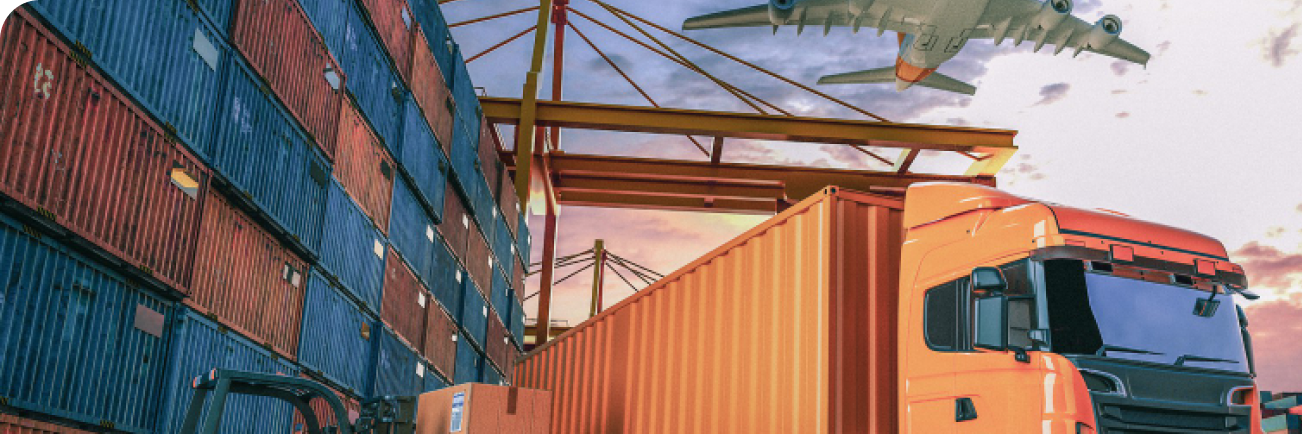In the vast and intricate realm of commerce, logistics services serve as the invisible threads that seamlessly connect the dots between production, distribution, and consumption. Let’s delve into what is logistics service and unravel their significance in the modern business landscape.
What Is Logistics Services?

At its essence, logistics services encompass a spectrum of activities involved in the planning, execution, and management of the flow of goods, services, and information from point of origin to point of consumption. It encompasses a myriad of functions, including transportation, warehousing, inventory management, order fulfillment, and supply chain optimization.
What is the purpose of logistics services?
The purpose of logistics services is to efficiently manage the flow of goods, services, and information from the point of origin to the point of consumption. This involves a range of activities, including transportation, warehousing, inventory management, order fulfillment, and supply chain optimization. The ultimate goal of logistics services is to ensure that products are delivered to customers in a timely, cost-effective, and reliable manner, thereby meeting customer demand and enhancing overall business performance.
What are the types of logistics?

Logistics can be categorized into various types based on the specific functions they serve within the supply chain. Here are some common types of logistics:
1. Inbound Logistics:
This involves the management of materials, parts, and supplies as they are transported from suppliers to manufacturing or assembly plants. Activities include transportation, warehousing, inventory management, and receiving.
2. Outbound Logistics:
Outbound logistics focuses on the distribution of finished products from manufacturing or assembly plants to customers or retailers. It encompasses order processing, picking, packing, transportation, and delivery.
3. Third-Party Logistics (3PL):
3PL providers offer outsourced logistics services to businesses, including transportation, warehousing, distribution, and freight forwarding. They help streamline supply chain operations and reduce costs by leveraging their expertise and infrastructure.
4. Fourth-Party Logistics (4PL):
4PL providers act as supply chain integrators, overseeing and managing multiple logistics functions on behalf of their clients. They typically coordinate the activities of various 3PL providers to optimize supply chain performance.
5. Reverse Logistics:
This involves managing product returns, exchanges, repairs, recycling, and disposal. It focuses on optimizing the reverse flow of goods and materials from customers back to the manufacturer or supplier.
6. Cold Chain Logistics:
Cold chain logistics specializes in the transportation, storage, and handling of temperature-sensitive products, such as pharmaceuticals, perishable foods, and biologics. It ensures these products maintain their integrity and quality by controlling temperature and humidity levels.
7. E-commerce Logistics:
E-commerce logistics handles the fulfillment of online orders, including order processing, picking, packing, shipping, and last-mile delivery. It caters to the unique requirements of online retailers and aims to provide fast, reliable, and cost-effective delivery to customers.
These are some of the key types of logistics, each serving specific needs within the broader supply chain ecosystem. Businesses often utilize a combination of these types to effectively manage their supply chain operations.
Logistics services examples

Logistics services encompass a wide range of activities aimed at efficiently managing the flow of goods and information throughout the supply chain. Here are some examples of logistics services:
1. Transportation Services:
- Freight forwarding: Arranging the transportation of goods via various modes such as road, rail, air, or sea.
- Trucking: Providing trucking services for local, regional, or long-distance transportation of goods.
- Air cargo services: Facilitating the transportation of goods via air freight, including customs clearance and delivery to the final destination.
- Ocean freight services: Managing the shipment of goods via ocean vessels, including booking, documentation, and tracking.
- Rail freight services: Organizing the transportation of goods by rail, including intermodal transportation.
2. Warehousing and Distribution Services:
- Public warehousing: Offering shared storage facilities for businesses to store their inventory on a short-term or long-term basis.
- Contract warehousing: Providing dedicated storage facilities and services tailored to the specific needs of a single client or industry.
- Cross-docking: Facilitating the direct transfer of goods from inbound to outbound trucks without storage, optimizing efficiency.
- Order fulfillment: Managing the picking, packing, and shipping of customer orders from warehouses or distribution centers.
3. Inventory Management Services:
- Inventory optimization: Utilizing technology and analytics to optimize inventory levels, reduce carrying costs, and improve order fulfillment rates.
- Just-in-time (JIT) inventory management: Implementing inventory replenishment strategies to minimize stock holding and increase efficiency.
- Vendor-managed inventory (VMI): Allowing suppliers to manage inventory levels at customer locations, ensuring timely replenishment and reducing stockouts.
4. Supply Chain Consulting Services:
- Strategic logistics planning: Assisting businesses in developing comprehensive logistics strategies aligned with their overall business objectives.
- Process optimization: Analyzing existing logistics processes and recommending improvements to enhance efficiency and reduce costs.
- Technology implementation: Advising on the selection and implementation of logistics technology solutions such as warehouse management systems (WMS) and transportation management systems (TMS).
5. Customs Brokerage and Compliance Services:
- Customs clearance: Facilitating the clearance of imported or exported goods through customs authorities, ensuring compliance with customs regulations and documentation requirements.
- Trade compliance consulting: Providing guidance on import and export regulations, tariff classification, and trade compliance best practices.
- These are just a few examples of logistics services that play a vital role in ensuring the smooth and efficient movement of goods through the supply chain. Depending on the specific needs of businesses, logistics service providers offer a wide range of customized solutions to meet their requirements.
Conclusion
In conclusion, logistics services serve as the silent orchestrators behind the scenes, enabling businesses to navigate the complexities of supply chain management with precision and efficiency. By leveraging logistics services effectively, businesses can streamline their operations, drive profitability, and stay ahead in today’s dynamic marketplace.
Experience the power of streamlined logistics solutions with Galaxy Freight. Whether you’re looking to optimize your transportation, enhance warehouse efficiency, or improve supply chain visibility, our expert team is here to help. Contact us today to unlock the full potential of your logistics operations and propel your business forward.



